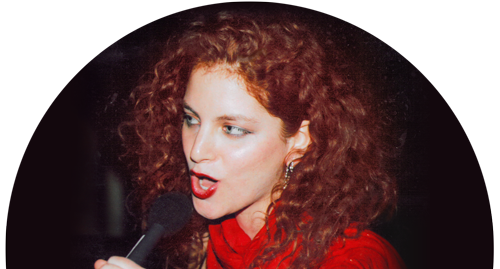 Daphna is angry. She’s back from her Ivy League college and is storming petulantly around a claustrophobically small studio apartment like a disgruntled toddler. Her cousin Jonah (Joe Coen) tries relentlessly to ignore the young tyrant as she moans about the fact that Jonah’s brother Liam (Ilan Goodman) has missed their Poppy’s (grandpa) funeral because he was skiing in Aspen with his girlfriend, who isn’t even Jewish. This opening scene sets the audience up perfectly for what’s to come – an hour and a half of increasingly un-passive aggression that’s full of belly laughs.
Daphna is angry. She’s back from her Ivy League college and is storming petulantly around a claustrophobically small studio apartment like a disgruntled toddler. Her cousin Jonah (Joe Coen) tries relentlessly to ignore the young tyrant as she moans about the fact that Jonah’s brother Liam (Ilan Goodman) has missed their Poppy’s (grandpa) funeral because he was skiing in Aspen with his girlfriend, who isn’t even Jewish. This opening scene sets the audience up perfectly for what’s to come – an hour and a half of increasingly un-passive aggression that’s full of belly laughs.
This new show from 31-year-old Joshua Harmon made its debut in New York in 2012 and was such a hit that in the past year it has become the third-most-produced play in America. The New York-born playwright conceived the idea for Bad Jews just over a decade ago after he attended a “depressingly unmoving” Yom Hashoah (Holocaust Memorial). The service involved grandchildren of Holocaust survivors offering up dispassionate dialogues about their relatives’ traumatising experiences. This got the budding writer considering what it means to be a young Jew in the modern world and whether we should strive to keep alive our religious beliefs and cultures in our children or work towards a religionless and nationless world. Because at the end of the day, should who we are matter?

This issue, while never tackled head-on, throws up various viewpoints throughout as the characters defend their religious and familial loyalties. Daphna – a pushy, furiously sincere “super-Jew” portrayed skilfully by Jenna Augen – and Liam – incredibly bright, but atheist part-time and Jewish when it suits him – bicker and manipulate their way through scenes, ultimately fighting for Poppy’s Chai (symbol for life) necklace, which comes with a heart-breaking backstory.
Kudos must also be given to set designer Richard Kent, whose level of detail plays as huge a part in drawing you in as the actors do. The studio apartment and entrance hallway where Bad Jews takes place is solidly constructed, with minutiae, such as plug sockets, bins and even a leaflet under the neighbour’s door, that make it satisfyingly easy to forget you’re watching from a theatre seat and become fully absorbed in the fast-paced dialogue.
There’s a great comic moment in Bad Jews when Gina Bramhill’s Melody, Liam’s girly gentile girlfriend coyly professes to a fiery Daphna: “It doesn’t matter to me that you’re Jewish,” in a bid to explain we’re all human after all. But it backfires and a leer of sheer disgust remoulds Daphna’s brow as she spits, “It matters to me!” This is just a snippet of Harmon’s deft penmanship – the way he can hint at importance of identity while maintaining a sense of humour. And he does well not to force his personal opinions on the audience, merely planting the seeds of ideas and leaving people to go away thinking about their own. It’s a play full of depth, quick-wit and poignancy. Bad Jews has it all.
By Danielle Goldstein
Bad Jews runs until Saturday 28 February. 2.30pm & 7.30pm. £10-£30. St James Theatre, 12 Palace St, SW1E 5JA; 084 4264 2140. www.stjamestheatre.co.uk









